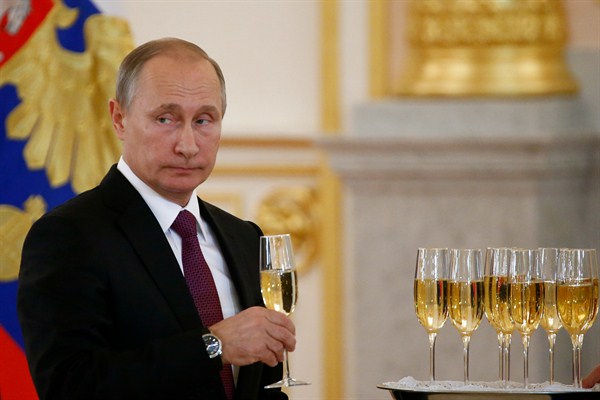Russia featured prominently in the 2016 presidential campaign. Democratic nominee Hillary Clinton depicted alleged Russian hacking of the Democratic National Committee’s email servers and other high-profile political targets, including her own campaign staff, as evidence of a Kremlin plot to harm her candidacy and promote her Republican opponent, now President-elect Donald Trump. Trump consistently dismissed Clinton’s allegations as desperate political mudslinging and put forward a very different set of ideas for U.S. relations with Russia.
One early Russia-related dustup came in response to Russian President Vladimir Putin’s ambiguously translated comment that Trump was a “bright” or “colorful” candidate. Trump, in return, described Putin as a “better leader” than President Barack Obama and indicated that he hoped he and Putin could cooperate, especially in the fight against the self-proclaimed Islamic State. Since then, Trump has been widely supported by both the state-supported Russian media and the Russian public, who saw in his candidacy an alternative to the hawkish, anti-Russian U.S. “establishment,” which to Russians is represented by Clinton.
Now some Russian officials and leading voices in the Russian press are treating Trump’s surprising electoral victory as a sign that Washington will soon change course on foreign policy issues that have been major irritants between the U.S. and Russia: Ukraine, Syria and NATO, to name just a few. Although Trump’s approach on Russia was less hawkish than both Clinton’s and Obama’s, campaign rhetoric does not always translate into policymaking once a president is sworn into office. President-elect Trump is set to bring to Washington a new enthusiasm for direct dialogue and possible cooperation with Russia. But his ability to find common ground with his Russian counterpart on deep disputes over Syria, Ukraine, NATO and other issues will face considerable constraints.

